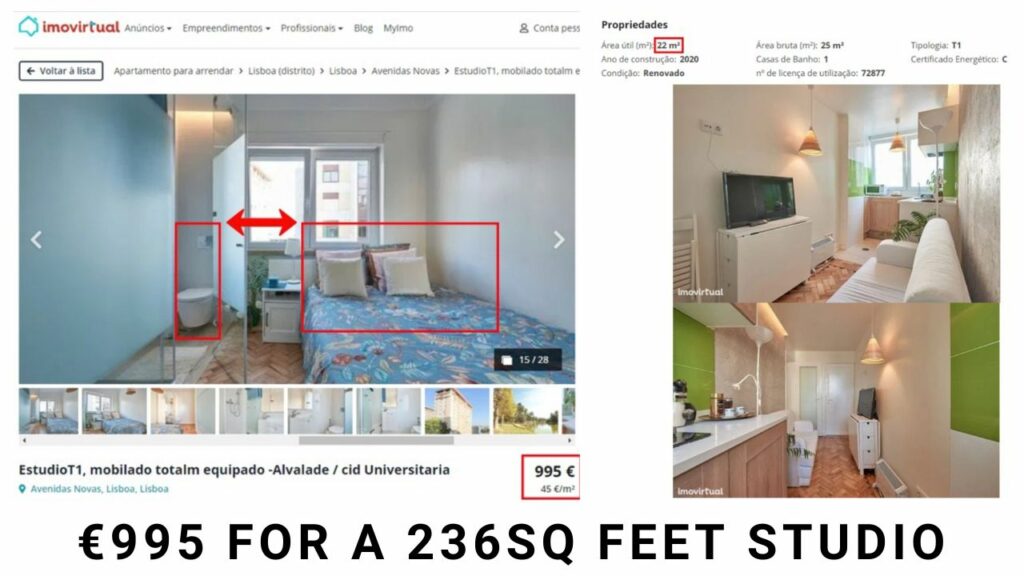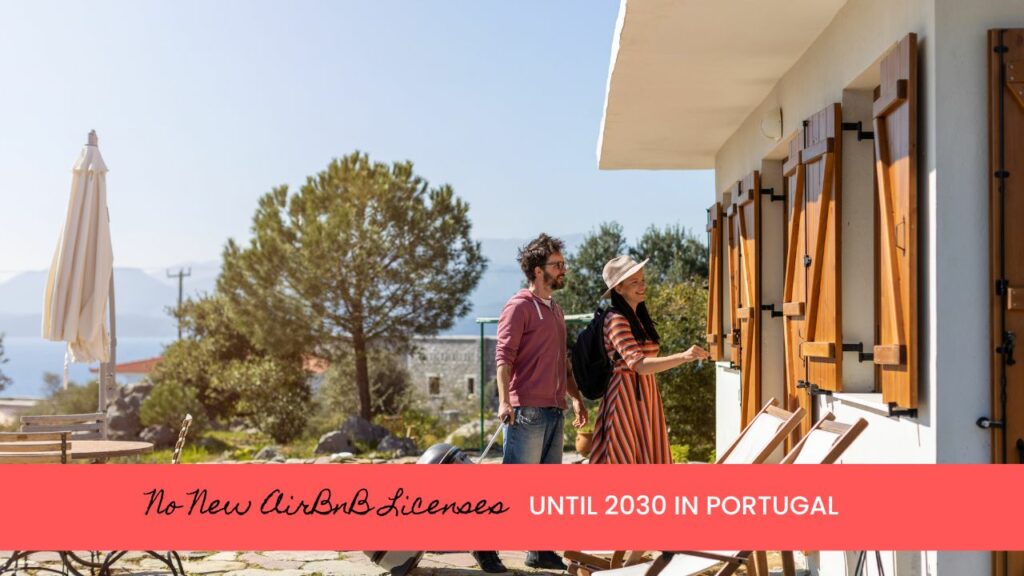Huge news for potential vacation rental owners in Lisbon. New alojamento local licenses suspended until 2030. In addition to ending new local accommodation licenses, the government has approved an increase in property taxes (IMI) and the application of an extra 20% tax on properties used for local accommodation. This comes as Portugal faces a cost of living crisis, with rents hitting a record high in the last quarter of 2022.
What is the Mais Habitação Program
On Thursday, the government approved several proposals to limit local accommodation as part of the “Mais Habitação’ (More Housing) package. The package is aimed at alleviating the price of rent. Why? There was a record increase of 11% in rents in Portugal in the final 3 months of 2022. These increased rent prices, rising inflation, high-interest rates, and low salaries have resulted in protests throughout the country over the cost and difficulty of living in Portugal. People just can’t find affordable housing.
Just How Much Has Housing Pricing Increased?

The asking price of new leases increased by 10.6% YOY to a median of 6.91 euros ($7.49) per square meter. Just last week, an 11.3% rise in house prices was reported. This is the steepest-ever annual rise despite the economic slowdown and rising mortgage rates. In Greater Lisbon (Lisbon and the surrounding areas), rental prices reached 10.38 euros/m2. In the Algarve, it was 8 euros/m2. As a comparison, in New York, people pay 50.87/m2.
What's Changing in Alojamento Local?
Although the “More Housing” package was open for public consultation for almost a month and received more than 2,700 suggestions, only some changes were made to the measures initially presented on February 16 regarding local accommodation.
The most significant change is eliminating the extra tax (now 20% instead of the initially proposed 35%) on local accommodation properties that are not individual apartments. This means that hostels and guest houses are exempt from this taxation.
Among the measures approved today by António Costa’s government is the suspension of new local accommodation licenses until December 31, 2030, except for low-density areas.
The government has also approved a set of measures aimed at increasing the tax burden on the sector, which will include raising property taxes (IMI) and applying an extra 20% tax on properties used for local accommodation – down from the initially proposed 35% – based on a taxable amount determined by an economic coefficient (taking into account the property’s area and income) and urban pressure.
The tax will not apply to all local accommodations in low-population density areas and all types of properties except individual apartments.
The tax on local accommodation will be used to finance affordable housing policies.
In addition, “ghost” local accommodation licenses have two months to submit their income declaration from this activity to the Tax Authority and maintain their active Alojamento Local license.
To further pressure local accommodation property owners, the government has approved the possibility for condominium residents, by a majority, to oppose local accommodations in autonomous fractions of buildings or parts of urban buildings.
To encourage current local accommodation properties to be placed on the rental market, the government has also approved a tax exemption (currently at a rate of 28%) on rental income from local accommodation properties transferred to the rental market.
The government hopes that these measures will increase the supply of properties in the rental market and thus help mitigate the housing crisis in major cities.
How Do People Feel About This?
I have friends on both ends of the spectrum. My Portuguese friends who own 3 apartments (their own and 2 that are rented out as AirBnB properties) are already talking to realtors. While they are not affected since they already have licenses for the two AL properties, they are concerned that at any time, any owner of another unit in either of the condominium buildings can start a process to stop their AL activities. They are obviously not too thrilled about these changes, particularly since they are still making up for money lost during the COVID-19 pandemic.
My other Portuguese friends are thrilled. One of them is currently looking for a new apartment since his current lease is about to end. Currently he is paying $800 for a full 1 bedroom and as you can see in the screenshot at the top, he will be paying almost the same for an apartment less than 1/2 the size of the original apartment.
What Do you Think?
There are currently 60,000 individual entrepreneurs who rely on local accommodation for their livelihood and 10,000 companies. Therefore, these changes will definitely affect their livelihood.
IMHO, limiting the number of Alojamento Local licenses a person can have would be better. This way, locals could still make money off AirBnB, and foreign investors would not be incentivized to purchase multiple properties for this purpose. Preventing corporate landlords should be a priority.
Portugal should also push tourism out of Lisbon, Porto, and the Algarve to other parts of the country.
Finally, it would be incredible if young Portuguese people were given interest free loans towards their first housing purchase.
I’d love to hear from you. What do you think could be done to fix the housing issue in Portugal? Leave a note in the comments.
FAQs
New Alojamento Local licenses have been suspended until 2030.
The Mais Habitação Program aims to alleviate the price of rent and address the housing crisis in Portugal.
Housing prices increased by 11%, with new leases increasing by 10.6% year-on-year.
The new tax rate applies an extra 20% tax on properties used for local accommodation, with some exceptions for low-density areas and non-individual apartment properties.
The tax will be used to finance affordable housing policies.
Condominium residents can, by a majority, oppose local accommodations in autonomous fractions of buildings or parts of urban buildings.
The government has approved a tax exemption on rental income from local accommodation properties transferred to the rental market.
Some property owners are concerned that these changes will affect their income, especially those who have already invested in AirBnB properties.
The changes will affect the livelihood of 60,000 individual entrepreneurs and 10,000 companies that rely on local accommodation.
Limiting the number of Alojamento Local licenses per person, promoting tourism in other parts of the country, and providing interest-free loans for young Portuguese people to purchase their first home.

